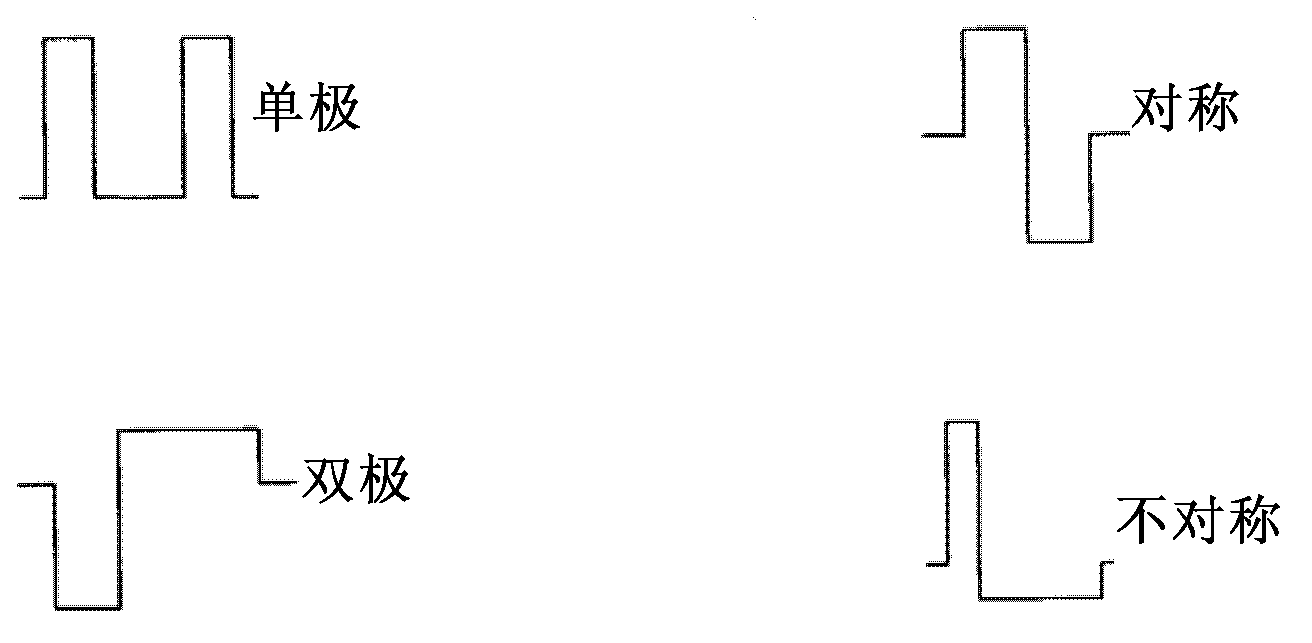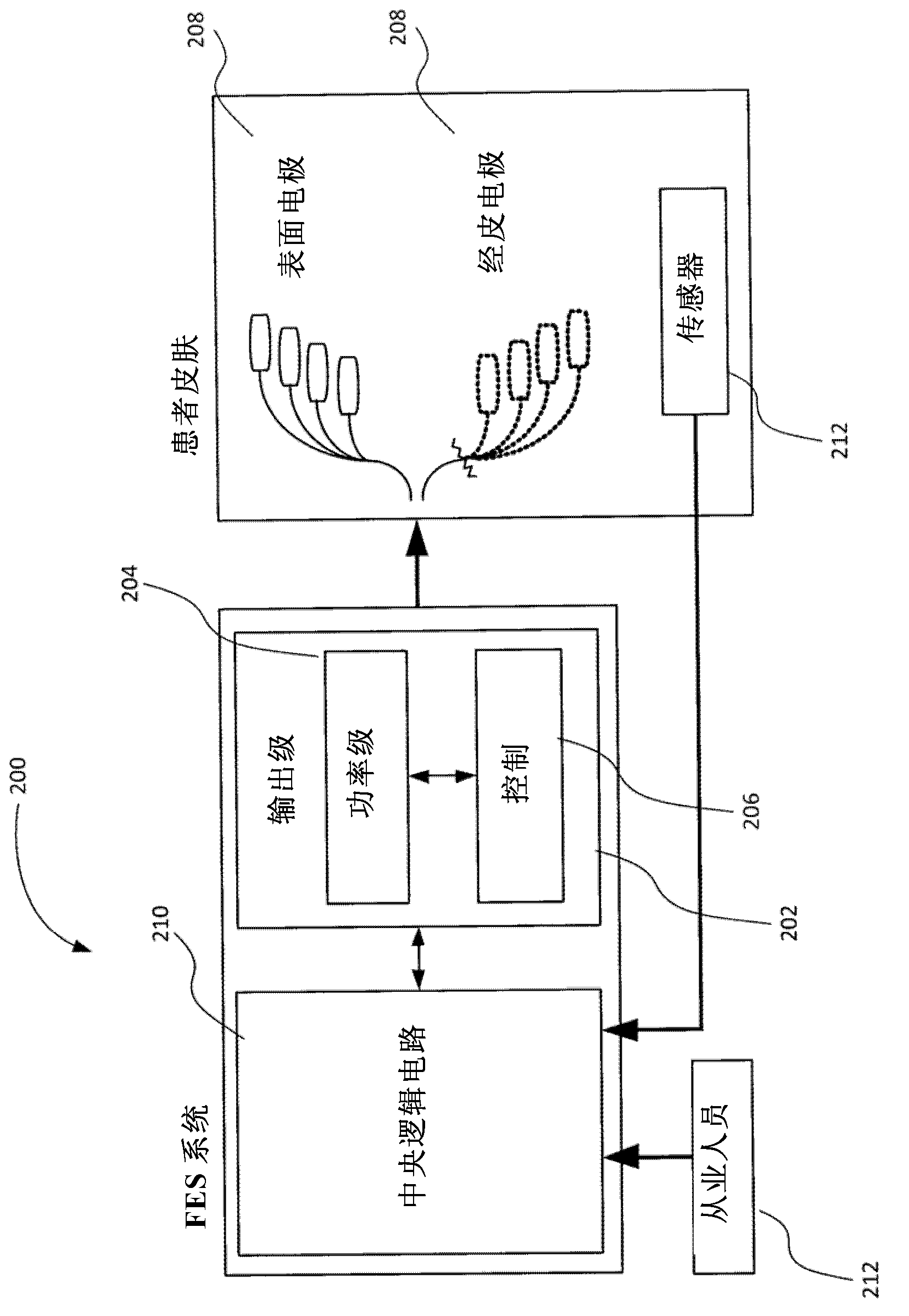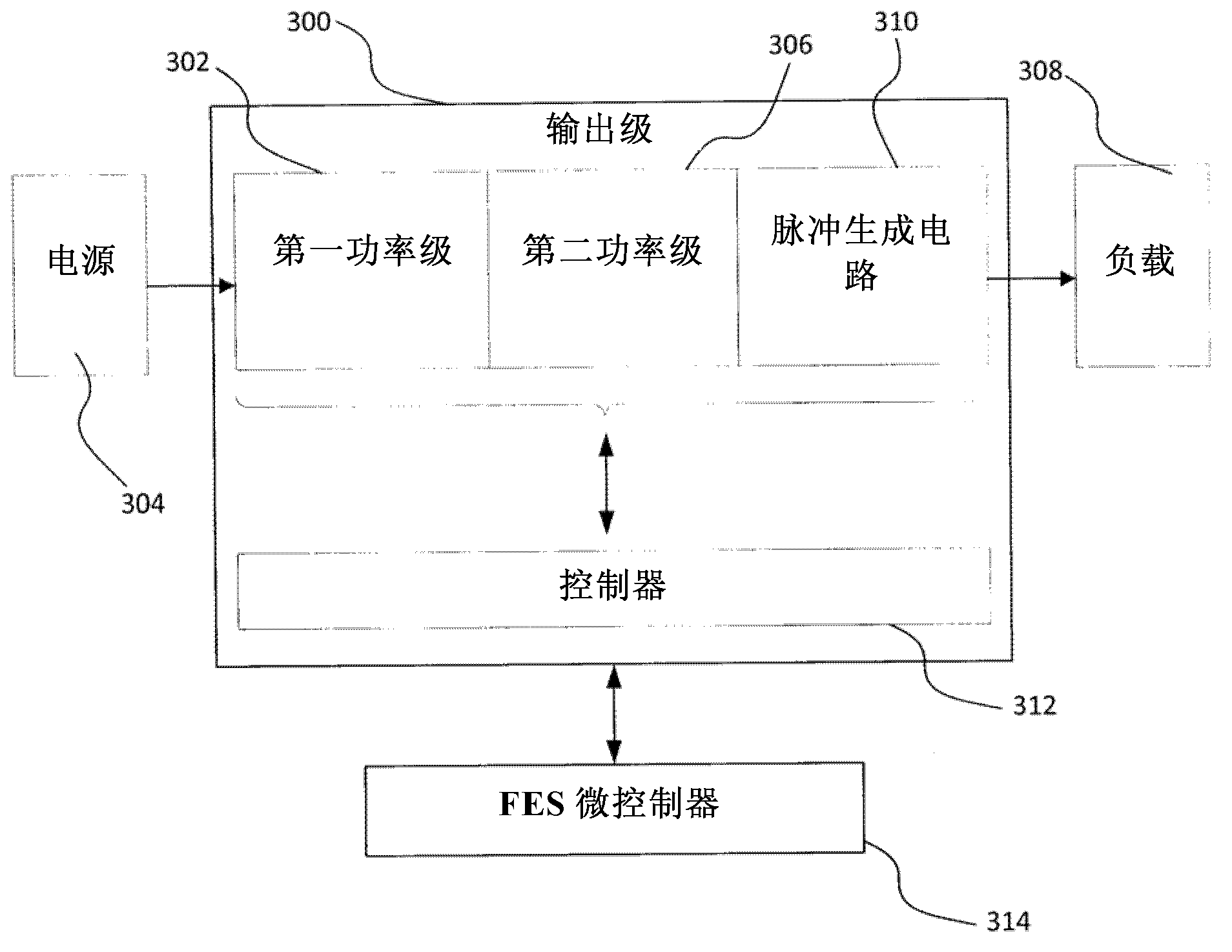Functional electrical stimulation device and system, and use thereof
A technology of electrical stimulation and power supply, which is applied in the field of electrical stimulation and can solve problems such as power loss and uncomfortable therapy
- Summary
- Abstract
- Description
- Claims
- Application Information
AI Technical Summary
Problems solved by technology
Method used
Image
Examples
example 1
[0146] This example provides experimental results for an exemplary embodiment of the device. In this exemplary embodiment, the SMPS FES system is provided as a single channel stimulator comprising two power stages, a switched capacitor output circuit, and a digital block including a controller for the flyback converter and Circuit for buck and switched capacitor output. Flyback converters are generally configured to operate using current programmed mode (CPM). A flyback converter typically builds a high voltage output, which is fed into a buck converter, which in turn scales it down to the desired level. Finally, to construct the output current pulse, the switched capacitor circuit rapidly changes the voltage level and current direction. The buck duty cycle is controlled using hysteretic control. The converter and output blocks are designed and implemented on a printed circuit board (PCB), Figure 24 Its schematic diagram is shown in , and the digital part is implemented u...
example 2
[0171] This example provides the use of the following Figure 5 , 11 Experimental results obtained with prototypes constructed with 13 and 13 examples. That is, the four-channel stimulator is designed to include: a) a flyback power stage; b) four (4) stimulation channels, each including a buck converter, switched capacitor output circuit, and sensing circuit; and c) a digital block , the digital block includes controllers for the flyback power stage and pulse path. The first power stage establishes a high voltage output that feeds into each channel. A buck converter scales down the source voltage to the desired level. Finally, to construct the output current pulse, the switched capacitor circuit rapidly changes the voltage level and current direction. Use hysteretic control to control the buck converter duty cycle. Prototypes were built using discrete components and a programmable DE-2, FPGA Altera evaluation board as digital blocks. Converters and output blocks are desi...
example 3
[0187] This example provides the results of an exemplary FES treatment method for improving brain and associated muscle function in individuals with neuromuscular deficits, merely for the various FES applications that can be facilitated by the FES devices and systems described above , methods, and treatments provide examples. In this example, the individual suffers from a post-stroke neurological disorder. It will be appreciated that such neurological disorders of the central nervous system may result from, for example, stroke, spinal cord injury, brain injury, multiple sclerosis, and any other traumatic and non-traumatic injury to the central nervous system.
[0188] individual description
[0189] The subject was a 22-year-old female who suffered a hemorrhagic stroke in the right anterior parietal region two years prior to participation in the study. The individual arrived at the personal rehabilitation center with motor recovery status scored by CMSMR (Chedoke McMaster St...
PUM
 Login to View More
Login to View More Abstract
Description
Claims
Application Information
 Login to View More
Login to View More - R&D
- Intellectual Property
- Life Sciences
- Materials
- Tech Scout
- Unparalleled Data Quality
- Higher Quality Content
- 60% Fewer Hallucinations
Browse by: Latest US Patents, China's latest patents, Technical Efficacy Thesaurus, Application Domain, Technology Topic, Popular Technical Reports.
© 2025 PatSnap. All rights reserved.Legal|Privacy policy|Modern Slavery Act Transparency Statement|Sitemap|About US| Contact US: help@patsnap.com



